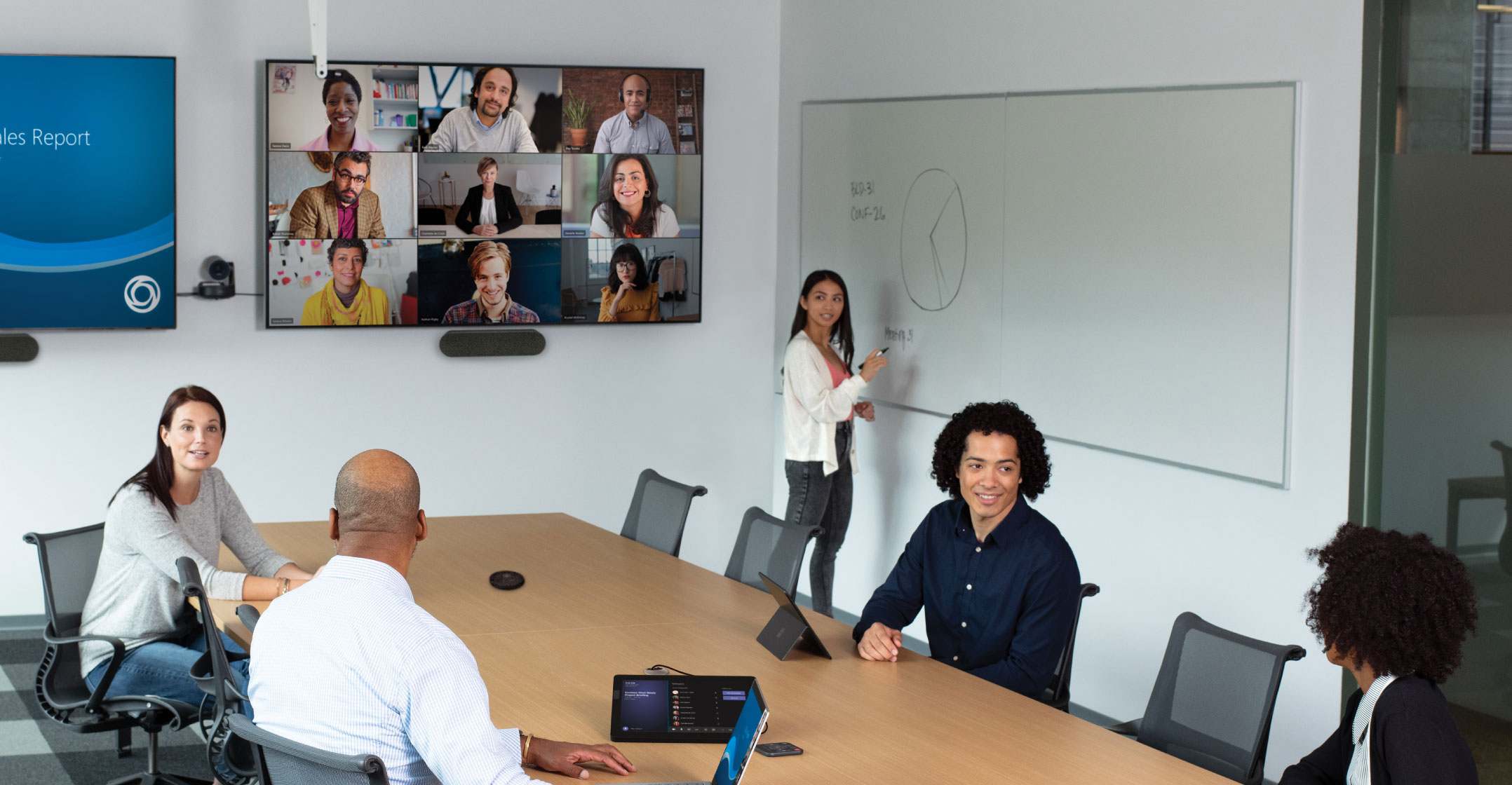 The world of work shifted irreparably nearly two years ago. But people adapted to the need to work remotely and have, in many ways, embraced the flexibility it offered. Now there’s another great disruption for businesses to navigate: the hybrid work paradox. People want to keep the flexibility of remote work, but crave the connection that comes from being together in an office.
The world of work shifted irreparably nearly two years ago. But people adapted to the need to work remotely and have, in many ways, embraced the flexibility it offered. Now there’s another great disruption for businesses to navigate: the hybrid work paradox. People want to keep the flexibility of remote work, but crave the connection that comes from being together in an office.
Microsoft’s 2021 Work Trend Index found that 67% of people missed in-person collaboration and engagement, while 73% wanted to retain the flexibility of remote work in the post-pandemic workplace. Nine out of 10 people in an EY global employee survey said they wanted flexibility in where and when they work.
The implications are clear for South African businesses: Leaders need to embrace extreme flexibility. If they don’t, they risk losing their people. The EY survey showed that 54% of employees who don’t receive the level of flexibility they need will quit.
Businesses need to think about how they respond to the ongoing transformation in the way people work, and what they can do to enable hybrid work going forward by accommodating different working styles. This means looking at and investing in three critical elements: people, places and processes.
Embracing extreme flexibility: making sure people, places and processes are in harmony
The first step organisations need to take is prioritising their people and placing them at the centre of their hybrid workplace strategy. At the heart of this lies the overall employee experience, with a focus on people’s wellbeing and on giving them the resources and tools needed to work and learn productively and seamlessly no matter where they are.
More and more, that means focusing on empowering people to succeed and be their best – and providing an integrated platform – like Microsoft Viva – that is able to bring tools for employee engagement, learning, wellbeing and knowledge discovery directly into the flow of people’s work.
Organisations that have successfully adopted and deployed Microsoft Viva include insurer Old Mutual, which recognised the need to understand the habits of its workforce during the pandemic and fine-tune its hybrid work strategy. Viva Insights gave the company and its employees more visibility into how and when people work – ensuring a better employee experience, which will ultimately lead to a better customer experience.
As well as providing the insights and tools that people need to contribute and collaborate from wherever they happen to be working, there is a growing focus on how businesses can adapt physical places to enable better collaboration between people that are in an office and those working remotely.
Adapting physical spaces to become collaborative hybrid experiences
The Work Trends Index revealed that 66% of business decision makers are considering redesigning physical spaces to better accommodate hybrid work environments. Research by PwC also found that the focus is expected to be on increasing space where people can initiate, develop and strengthen relationships. This means spaces where they can experience the culture and brand – and where teams are able to come together to brainstorm, collaborate and problem-solve.
Investments in this area include Microsoft Teams Rooms, which are designed as a collaborative experience space to give everyone a voice – whether they are in the room or joining virtually. Features such as smart cameras and AI-powered active speaker tracking, as well as multiple video streams and life-sized video panes of virtual contributors, ensure a more inclusive, collaborative discussion and experience.
Coupled with advances in adapting pysical spaces, businesses also need to invest in digitising traditionally manual processes to ensure continuous work and business continuity.
Research by the IDC indicates that businesses have upped their investments in key technology and processes over the past 12-18 months to enable this continuity. The public sector is no exception. eThekwini, for example, enabled the municipality to fully function and deliver services without disruption during the pandemic. Leveraging Microsoft Azure, Microsoft 365 and Teams, the city was able to make the switch to remote work without having a negative impact on its employees, and they are still leveraging smart capabilities and IT systems to adjust to the evolving workplace.
According to the IDC, to successfully support hybrid work, the public – and private – sector needs to get comfortable with embracing a workforce that is “hybrid by design, not by circumstance”. This means investing in the employee experience, complete with the tools, resources, places and processes needed to enable work and productivity in a hybrid environment.
For more insights, stories and converstaions on the science of work and how people will work in the future visit Microsoft WorkLab.
About Colin Erasmus
Colin Erasmus is Modern Workplace and Security Business Group lead at Microsoft South Africa. He started his professional career as an entrepreneur in a start-up technology consultancy, and developed niche technologies that are still being used today in the electronic events registration industry.
He is one of a select few privacy-certified individuals in South Africa, and assisted in drafting South Africa’s privacy legislation, the Popi Bill. Erasmus has over 20 years of experience with Microsoft that has equipped him with strong business acumen and people management experience. He is an expert in Microsoft Modern Workplace solutions, which help customers improve employee productivity and satisfaction, and create seamless communication and collaboration across locations and platforms while maintaining the security and integrity of systems and data.
About Microsoft
Microsoft enables digital transformation for the era of an intelligent cloud and an intelligent edge. Its mission is to empower every person and every organisation on the planet to achieve more. Connect on Twitter or Facebook.
- This promoted content was paid for by the party concerned




